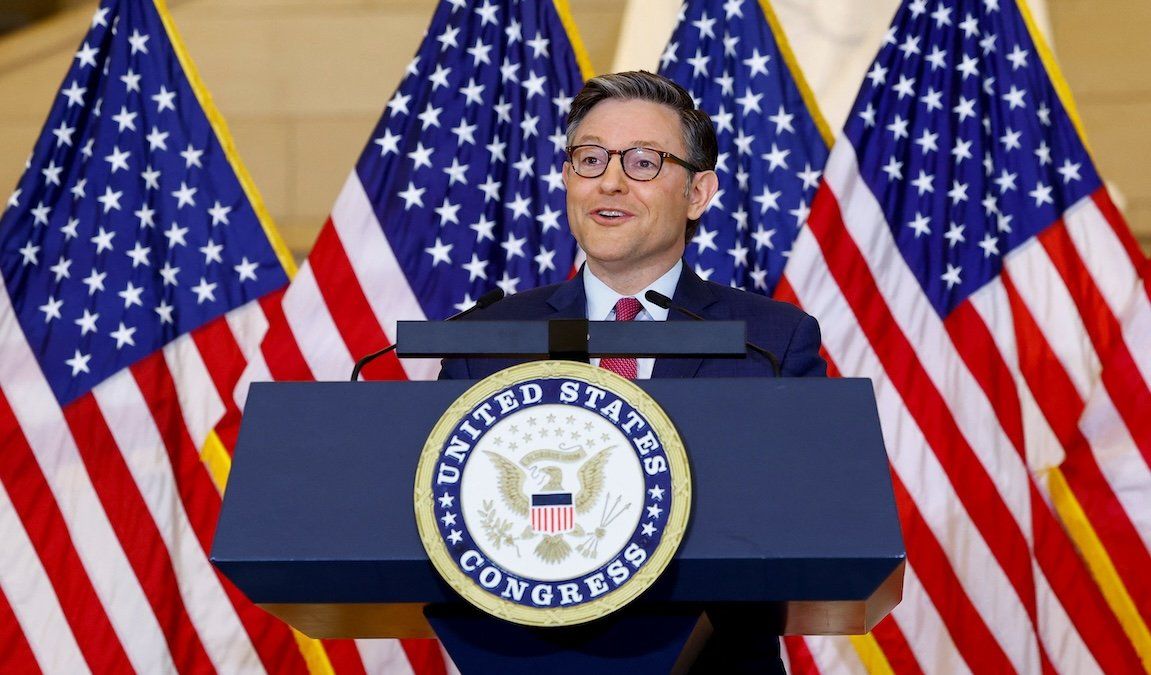September 23, 2024
Congressional leaders worked through the weekend to reach a deal to fund the government through December. Sunday’s decision is a small triumph for House Speaker Mike Johnson, who convinced fellow Republicans that shutting down the government 40 days before a tight election would be “political malpractice.”
But Donald Trump is unlikely to thank him, as the deal came at the cost of Republicans dropping the SAVE Act, an immigration proposal that included new proof-of-citizenship requirements for voter registration. Trump has told Congress not to pass a spending plan without “every ounce” of the proposal and has yet to comment since it was dropped.
Beyond the presidential election, Johnson was also likely motivated to protect Republicans in down-ballot races in November.
The agreed-upon plan includes “only the extensions that are absolutely necessary” besides an additional $231 million to boost Secret Service protections for the candidates during the upcoming presidential election and into next year.
The deal extends government funding through Dec. 20, all but ensuring that the lame-duck period between the election and the inauguration of a new Congress is engulfed in spending disputes. Just in time for the holidays!
More For You
World Central Kitchen staff hand out free soup in a neighbourhood that experiences electricity and heating outages following recent Russian attacks on Ukraine’s civilian infrastructure during subzero temperatures in Kyiv, Ukraine February 3, 2026.
REUTERS/Thomas Peter
1,170: The number of high-rise buildings in Kyiv that were left without heating following a barrage of Russian attacks last night on Ukraine’s capital and its energy facilities, per Kyiv Mayor Vitali Klitschko.
Most Popular
What We’re Watching: US critical minerals summit, Rafah crossing reopens, Border violence in Pakistan
Feb 02, 2026
U.S. President Donald Trump and Japanese Prime Minister Sanae Takaichi hold up signed documents regarding securing the supply of critical minerals and rare earths, at a bilateral meeting at Akasaka Palace in Tokyo, Japan, October 28, 2025.
REUTERS/Evelyn Hockstein
Representatives from the European Union, United Kingdom, Japan, and others will meet in Washington this week to discuss a strategic alliance on critical minerals.
Hard numbers: Large protests in Czechia, UAE-linked firm has large stake in the president’s company, & More
Feb 02, 2026
People take part in a rally in support of Czech President Petr Pavel, organised by Million Moments for Democracy group in reaction to dispute between President Pavel and Czech Foreign Minister and Motorists chair Petr Macinka, in Prague, Czech Republic, February 1, 2026.
REUTERS/Eva Korinkova
80,000: The number of people estimated to be in the streets of Czechia on Sunday to show their support for President Petr Pavel after he blocked the nomination of an environmental minister who performed the Nazi salute and posted Nazi memorabilia.
US President Donald Trump and musician Nicki Minaj hold hands onstage at the US Treasury Department's Trump Accounts Summit, in Washington, D.C., USA, on January 28, 2026.
REUTERS/Kevin Lamarque
The US has started handing $1,000 to the bank accounts of newborn babies. But can policies like this one help boost sagging birthrates in advanced democracies?
© 2025 GZERO Media. All Rights Reserved | A Eurasia Group media company.
